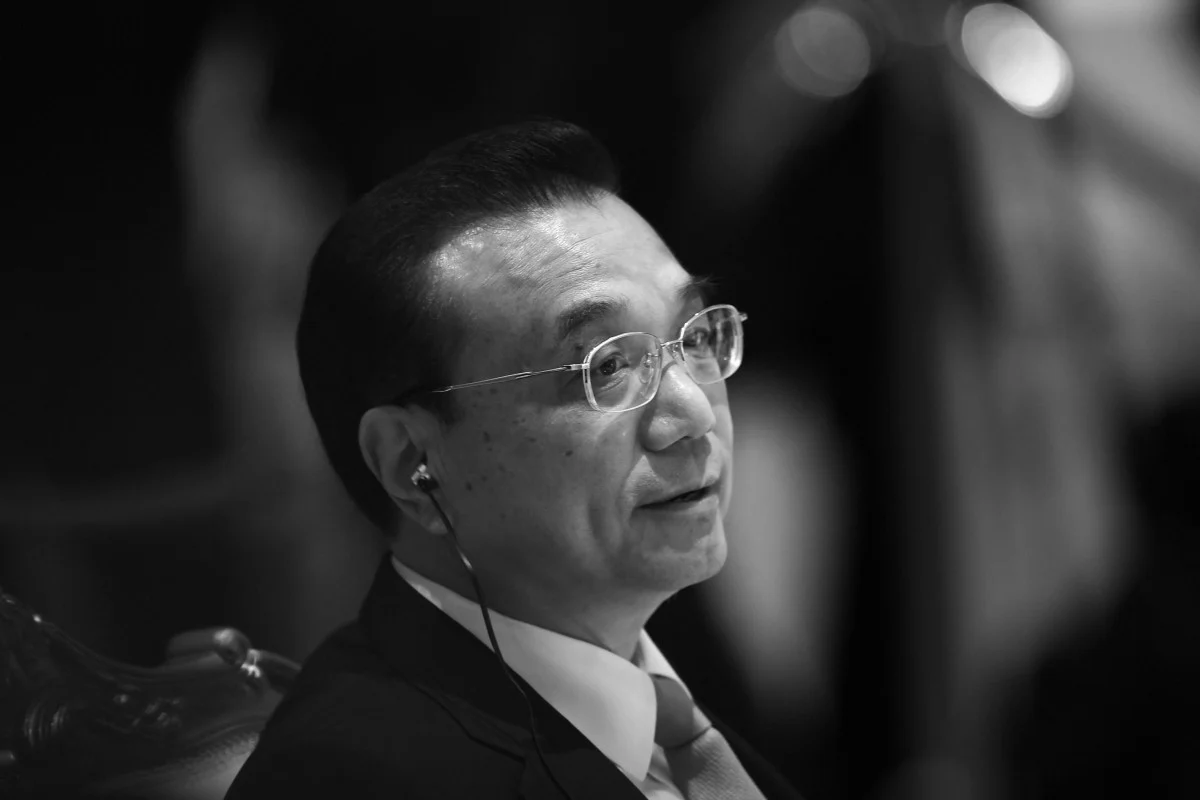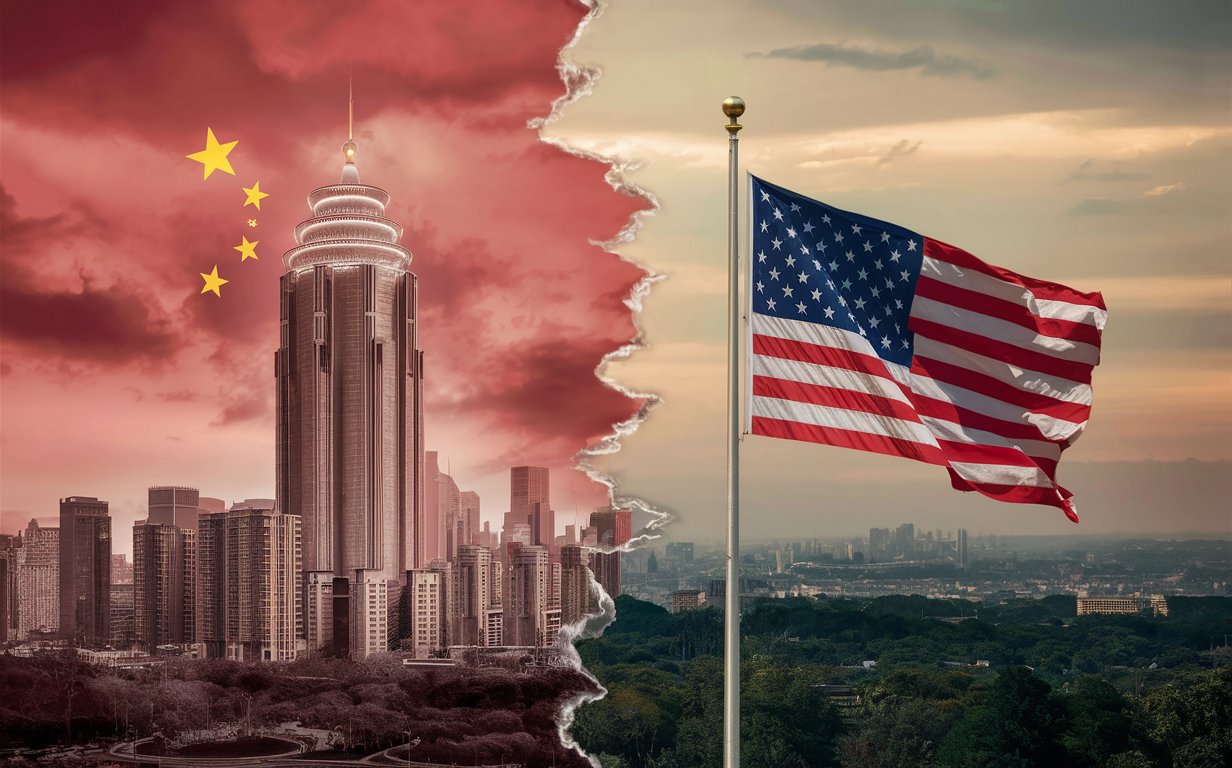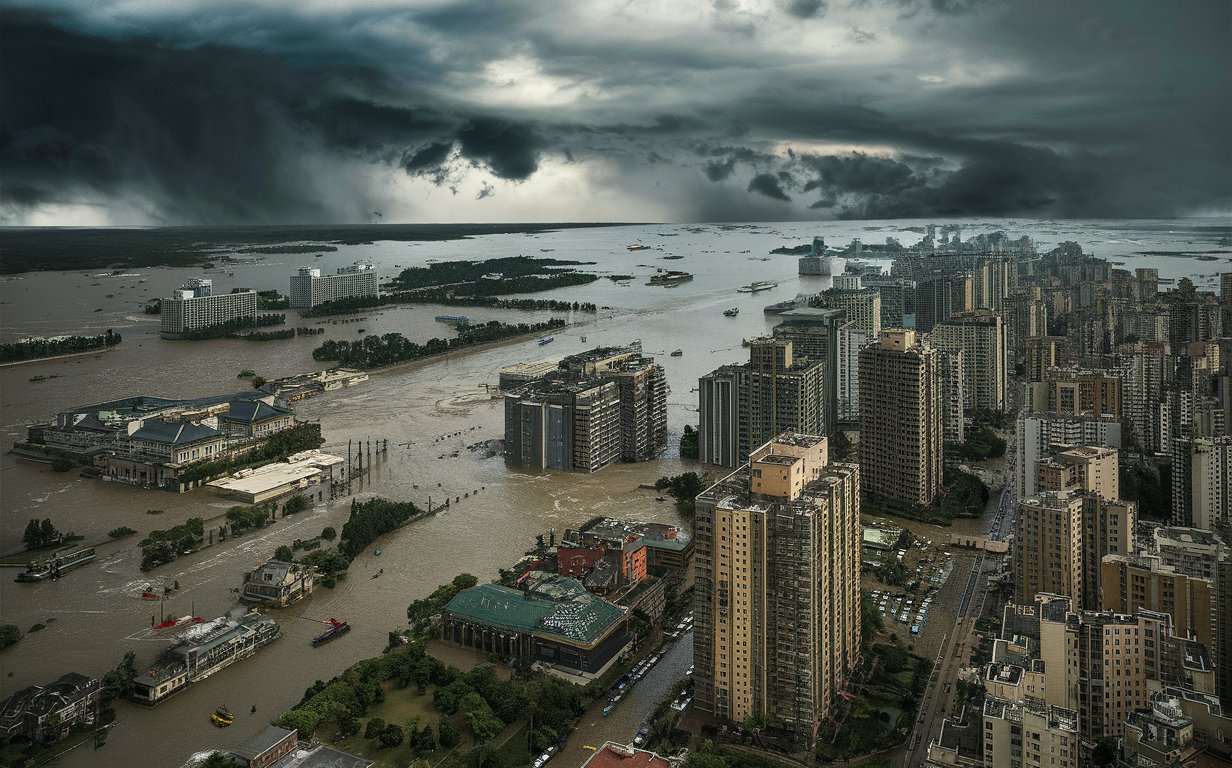China
A Tribute to Late Li Keqiang: The Former Premier of China

Table of Contents
Introduction
In a world marked by political upheavals and power struggles, the life and legacy of Li Keqiang, the former Premier of China, stand out as a testament to leadership, vision, and unwavering dedication. This opinion article pays tribute to a man whose name has become synonymous with transformative change and indomitable will. Li Keqiang often referred to as “PM” for his role as the Premier of China, left an indelible mark on the world stage. This piece will delve into his remarkable contributions, his visionary leadership, and the grand state funeral that honoured his memory.
Li Keqiang: A Brief Biography
Li Keqiang, born on July 1, 1955, in Hefei, Anhui Province, China, had a humble beginning. He rose through the ranks of the Communist Party of China and, after years of dedicated service, became the Premier in 2013. His journey from an ordinary Chinese citizen to one of the most influential political figures in the world is a testament to his perseverance and commitment to public service.
Early Life and Education
Li’s early life was marked by modesty and a deep desire for knowledge. He pursued his education diligently and later graduated from Peking University, where he earned a degree in economics. This solid academic foundation would prove crucial in shaping his vision for China’s future.
Li Keqiang’s Contributions
Economic Reforms and Modernization
Li’s tenure as Premier witnessed significant strides in China’s economic growth. His commitment to economic reforms and modernization programs played a pivotal role in lifting millions of Chinese citizens out of poverty. His “Chinese Dream” initiative aimed to make China a more equitable and prosperous nation.
Li believed that economic development should benefit all segments of society, not just the elite. His policies aimed at reducing income inequality, ensuring equal access to education and healthcare, and creating opportunities for entrepreneurs and small businesses.
Environmental Stewardship
Under Li Keqiang’s leadership, China took significant steps to address environmental issues. He recognized the importance of sustainability and pushed for initiatives to combat air pollution, promote clean energy, and reduce carbon emissions. His emphasis on environmental protection showcased his commitment to a harmonious society and a better future for the planet.
Global Diplomacy
As China’s Premier, Li played a vital role in shaping the country’s foreign policy. He believed in peaceful coexistence, diplomatic negotiations, and mutual respect among nations. His vision for a globally interconnected world that respected each country’s sovereignty marked a shift in China’s approach to international relations.
The Visionary Leader
Li Keqiang was not merely a statesman; he was a visionary leader who saw China’s potential on the world stage. His vision extended beyond economic growth to encompass a global perspective. He envisioned a China that would lead in innovation, technology, and sustainable development.
State Funeral: A Grand Tribute
Li Keqiang’s passing was a moment of profound sorrow for the Chinese people. To honor his memory, a grand state funeral was held. Dignitaries from across the world attended, paying their respects to a leader who had left an indelible mark on history.
The funeral was a sombre yet majestic event, reflecting the respect and admiration Li commanded. It served as a reminder of the significant contributions he made to his nation and the world.
Conclusion
In the annals of history, Li Keqiang’s name will forever be etched as a visionary leader and a statesman of unparalleled influence. His contributions to China’s growth, his commitment to environmental stewardship, and his vision for a globally interconnected world continue to inspire. The grand state funeral that honoured his memory was a fitting tribute to a life well lived.
Li Keqiang’s legacy serves as a reminder that true leadership goes beyond politics; it is about leaving the world better than you found it. His journey, from humble beginnings to the highest echelons of power, is a testament to the potential within each of us to make a positive impact on the world. Li Keqiang will always be remembered as a beacon of hope, a symbol of dedication, and a source of inspiration for generations to come.
Analysis
China warns US to choose between cooperation or confrontation: Blinken given ultimatum

According to reports, China has warned the United States that it must choose between “cooperation or confrontation” in their relationship. The comments were made by Yang Jiechi, a senior Chinese diplomat, during a virtual meeting with US Secretary of State Antony Blinken. The meeting was the first high-level talks between the two countries since President Joe Biden took office.

The warning comes amid growing tensions between the US and China over a range of issues, including trade, human rights, and Taiwan. The two countries have been engaged in a trade war since 2018, which has seen both sides impose tariffs on each other’s goods. In addition, the US has imposed sanctions on Chinese officials over the treatment of Uighur Muslims in Xinjiang, while China has been accused of cracking down on democracy in Hong Kong.
The meeting between Blinken and Yang was described as “tough” and “frank” by both sides. While the US has said it wants to work with China on issues such as climate change and the pandemic, it has also called on China to respect human rights and stop its aggressive actions in the South China Sea.
Table of Contents
Diplomatic Ultimatum

China has warned the United States sternly, stating that it must choose between cooperation or confrontation. The ultimatum was delivered by China’s top diplomat, Yang Jiechi, during a virtual meeting with US Secretary of State, Antony Blinken.
Blink en’s Response
Blinken responded that the US is not seeking confrontation with China, but rather wants to ensure that the relationship between the two countries is based on “fairness, reciprocity and respect for international rules and norms.” He also emphasised the importance of addressing human rights issues in China, including the treatment of Uyghur Muslims in Xinjiang.
US-China Relations
The relationship between the US and China has been strained in recent years, with both countries engaging in a trade war and accusing each other of human rights abuses. China’s warning to the US comes as tensions continue to rise between the two nations.
It remains to be seen how the US will respond to China’s ultimatum, but the relationship between the two countries will be a key issue in international relations for the foreseeable future.
Areas of Cooperation and Confrontation

China and the United States have a complex relationship, with areas of both cooperation and confrontation. The following are some of the key areas where the two countries have worked together and where they have faced challenges.
Trade and Economic Policies
China and the United States are two of the world’s largest economies, and their trade relationship is critical to the global economy. However, the two countries have had a long-standing trade dispute, with the US accusing China of unfair trade practices, intellectual property theft, and currency manipulation. This has led to the imposition of tariffs on both sides, which has hurt businesses and consumers in both countries.
Military and Security Issues
China’s growing military power and territorial ambitions have raised concerns in the United States and other countries in the region. The US has accused China of militarizing the South China Sea, and has increased its military presence in the region in response. The two countries have also clashed over Taiwan, with the US supporting the island’s independence and China claiming it as part of its territory.
Human Rights and Cybersecurity
The US has raised concerns about China’s human rights record, particularly in relation to Tibet, Xinjiang, and Hong Kong. China has been accused of suppressing dissent, cracking down on religious and ethnic minorities, and violating international human rights standards. The two countries have also clashed over cybersecurity, with the US accusing China of state-sponsored hacking and cyber espionage.
In conclusion, the relationship between China and the United States is complex, with cooperation and confrontation in several key areas. While there are challenges to be addressed, there are also opportunities for the two countries to work together to address global issues such as climate change and economic development.
Implications for International Relations

Allies’ Reactions
China’s warning to the US about the need to choose between “cooperation or confrontation” has implications for international relations, particularly about how US allies will react. The US has traditionally relied on its allies in the Asia-Pacific region to help counterbalance China’s growing influence. However, some of these allies, such as Japan and South Korea, have been hesitant to take a hardline stance against China, preferring instead to maintain good economic relations with their neighbour.
The recent warning from China could further complicate matters for the US and its allies, as it may force them to choose between maintaining good economic relations with China or siding with the US in a potential confrontation. This could lead to a fracturing of the US-led alliance system in the region, which could ultimately benefit China.
Global Strategic Balance
China’s warning also has implications for the global strategic balance. The US has been increasingly concerned about China’s military modernisation and its growing influence in the Asia-Pacific region. The US has responded by increasing its military presence in the region and strengthening its alliances with countries such as Japan and South Korea.
However, China’s warning could be seen as a challenge to the US’s strategic position in the region. If the US were to back down in the face of China’s warning, it could be seen as a sign of weakness, which could embolden China to further assert its influence in the region.
On the other hand, if the US were to take a hardline stance against China, it could risk escalating tensions and potentially even leading to a military confrontation. This would have serious implications for the global strategic balance, particularly given the nuclear capabilities of both countries.
Overall, China’s warning to the US has significant implications for international relations and the global strategic balance. The US and its allies will need to carefully consider their response in order to maintain stability and avoid further escalating tensions in the region.
Analysis
Understanding China’s Alternative Order and Lessons for America

The vision of Chinese President Xi Jinping for a new global order is reshaping international dynamics. This agenda seeks to challenge traditional Western dominance and establish a multipolar system based on Chinese principles. As China works towards redefining global institutions, norms, and power structures, it prompts a critical examination of the implications for the United States and the international community. This is especially important in today’s rapidly evolving global landscape.

Table of Contents
China’s Vision for a New World Order
President Xi Jinping’s vision for a new global order is rooted in the idea of a “community with a shared future for mankind.” This vision encompasses key initiatives such as the Belt and Road Initiative, the Global Development Initiative, the Global Security Initiative, and the Global Civilization Initiative. By promoting common security, economic development, and state-determined political rights, China seeks to position itself as a central player in shaping the future of international relations.
Assessing China’s Progress and Challenges
While China’s aspirations for global leadership are evident, the effectiveness of its strategies and the reception from the international community are subject to scrutiny. Despite Beijing’s efforts to expand its influence, there are indications of setbacks and resistance. China’s assertive diplomatic approach, characterized by the “Wolf Warrior” style, has raised concerns and alienated potential allies. Additionally, economic challenges and growing scepticism towards China’s intentions have hindered its quest for global acceptance.
Lessons for America
As China’s alternative order gains momentum, the United States must reassess its approach to international relations and global leadership. By understanding the motivations behind China’s initiatives and the responses they elicit, America can adapt its strategies to navigate this evolving geopolitical landscape effectively. Embracing a nuanced perspective that acknowledges both China’s ambitions and limitations can inform a more constructive engagement with Beijing and the broader international community.
Real-Time Data and Analysis
Recent data from the 2023 Pew Research Center study highlights the global perceptions of China and the United States. While China faces challenges in garnering favourable opinions and trust internationally, the United States maintains a stronger reputation for contributing to peace and stability. These findings underscore the importance of reputation, diplomacy, and soft power in shaping global perceptions and alliances.
Conclusion
In conclusion, China’s pursuit of an alternative world order presents both opportunities and challenges for the international community, including the United States. By critically examining China’s ambitions, successes, and setbacks, America can glean valuable insights for refining its own foreign policy and strategic priorities. As the global landscape continues to evolve, understanding China’s role and impact is essential for navigating the complexities of contemporary international relations.
China
China’s Sinking Cities: The Looming Crisis of Subsidence and Rising Sea Levels

Introduction
China’s coastal cities, home to over 400 million people, are facing a dual threat of subsidence and rising sea levels, according to a recent study. The study, published in the journal Science, found that a quarter of China’s coastal land will sink below sea level within a century, putting millions of lives and trillions of dollars in infrastructure at risk.
Subsidence and Sea Level Rise
Subsidence, or the sinking of the land, is a natural process that occurs when the ground settles or compacts over time. However, in China’s coastal cities, the process is being accelerated by human activities, such as the over-extraction of groundwater and the weight of buildings.
The study, conducted by researchers from the Chinese Academy of Sciences and the University of California, Berkeley, analyzed satellite data and found that the rate of subsidence in China’s coastal cities has increased by up to 50% in the past decade. The researchers also found that the subsidence is linked to changes in groundwater levels and the weight of buildings.
At the same time, sea levels are also rising due to climate change. According to the National Oceanic and Atmospheric Administration (NOAA), sea levels have risen by about 3.3 millimetres per year over the past 25 years. In China’s coastal cities, the combination of subsidence and sea level rise is creating a crisis that is only expected to worsen in the coming decades.
Impact on Coastal Cities
The impact of subsidence and sea level rise on China’s coastal cities is already being felt. In Shanghai, the city’s iconic Bund waterfront has sunk by up to 2.6 meters over the past century, while in Tianjin, the city’s central business district has sunk by up to 2.5 meters.
The subsidence is causing a range of problems, from increased flooding to damage to buildings and infrastructure. In some areas, the subsidence has caused roads and buildings to crack, while in other areas, it has led to the flooding of entire neighbourhoods.
The cost of addressing the subsidence and sea level rise crisis in China’s coastal cities is estimated to be in the trillions of dollars. The Chinese government has already spent billions of dollars on measures such as building sea walls and pumping sand onto eroding beaches. However, these measures are only a temporary solution and do not address the root causes of the subsidence.
Expert Opinions
Experts warn that the subsidence and sea level rise crisis in China’s coastal cities is a ticking time bomb. “The situation is very serious and requires urgent action,” said Dr. Xiaojun Yin, a researcher at the Chinese Academy of Sciences and one of the authors of the study. “We need to reduce the extraction of groundwater and find ways to reduce the weight of buildings.”
Dr. Robert Nicholls, a professor of coastal engineering at the University of Southampton, agrees. “China’s coastal cities are facing a perfect storm of subsidence and sea level rise,” he said. “The Chinese government needs to take urgent action to address the root causes of the subsidence and invest in long-term solutions to protect its coastal cities.”
Conclusion
China’s coastal cities are facing a crisis of subsidence and sea level rise that is only expected to worsen in the coming decades. The crisis is being driven by human activities, such as the over-extraction of groundwater and the weight of buildings. The Chinese government needs to take urgent action to address the root causes of the subsidence and invest in long-term solutions to protect its coastal cities.
The cost of addressing the crisis is estimated to be in the trillions of dollars, but the cost of inaction is likely to be much higher. Millions of lives and trillions of dollars in infrastructure are at risk. The Chinese government must act now to prevent a catastrophic flood from engulfing its coastal cities.
-

 Featured3 years ago
Featured3 years agoThe Right-Wing Politics in United States & The Capitol Hill Mayhem
-

 Elections 20242 months ago
Elections 20242 months agoAnalyzing Trump’s Super Tuesday Triumph and Nikki Haley’s Strategic Moves
-

 News2 years ago
News2 years agoPrioritizing health & education most effective way to improve socio-economic status: President
-

 China3 years ago
China3 years agoCoronavirus Pandemic and Global Response
-

 Canada3 years ago
Canada3 years agoSocio-Economic Implications of Canadian Border Closure With U.S
-

 Conflict3 years ago
Conflict3 years agoKashmir Lockdown, UNGA & Thereafter
-

 Democracy3 years ago
Democracy3 years agoMissing You! SPSC
-

 Democracy3 years ago
Democracy3 years agoPresident Dr Arif Alvi Confers Civil Awards on Independence Day
























